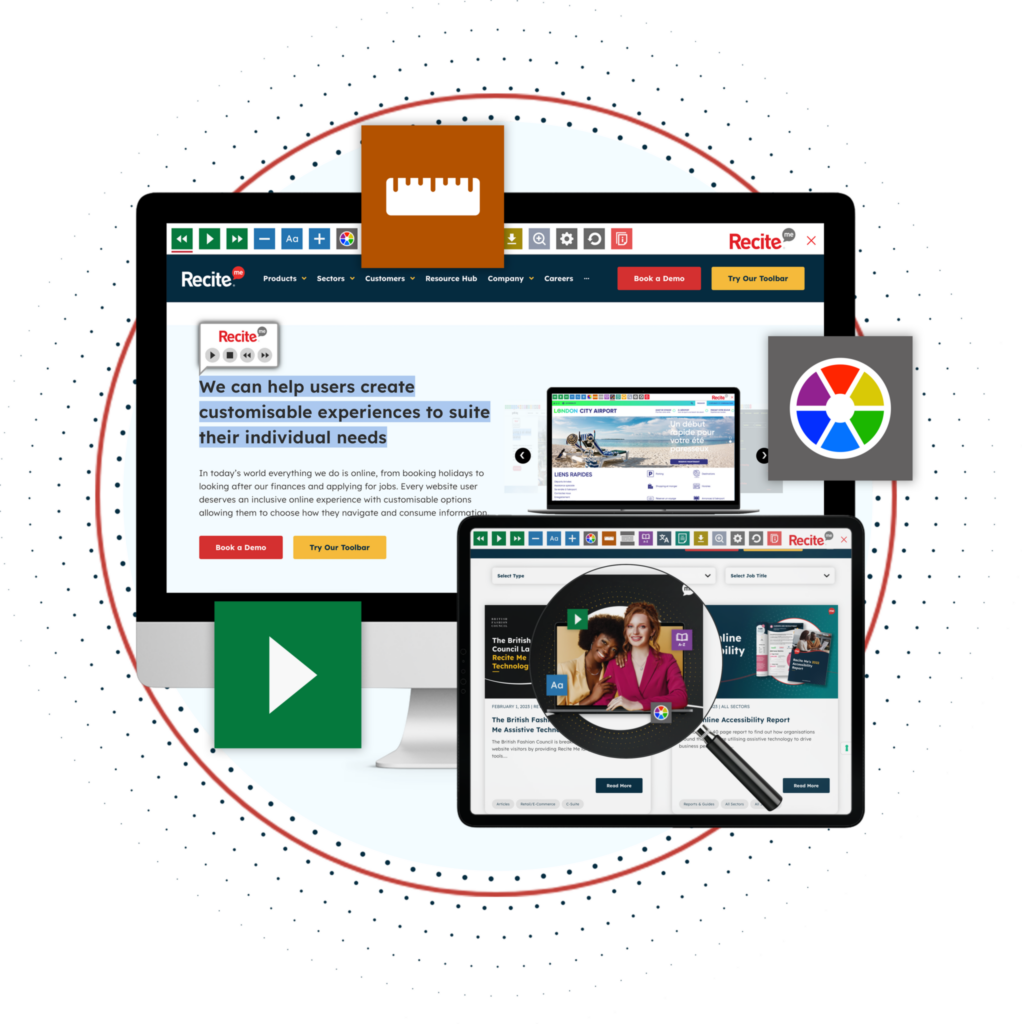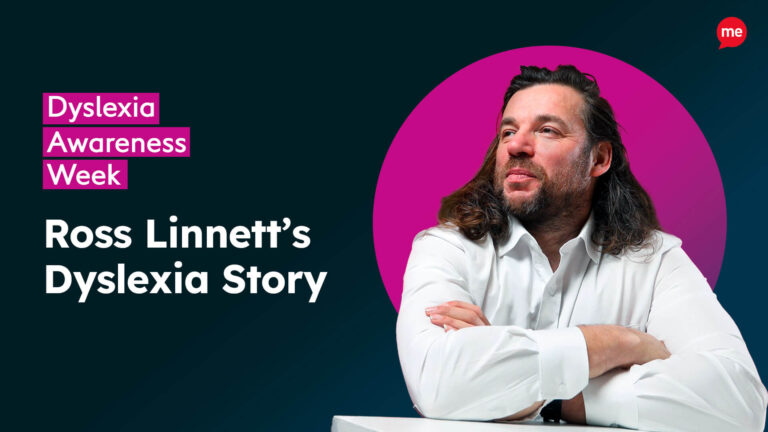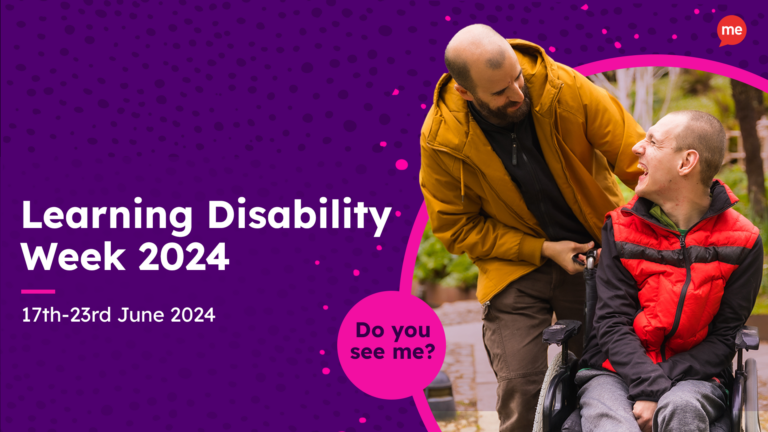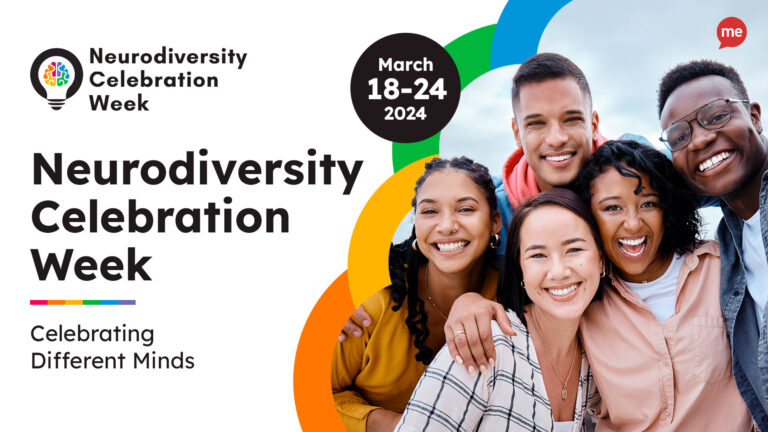Everyone has friends, colleagues or family members who have dyslexia. You may not know it, and those who have dyslexia may not even know it themselves. But it’s a condition that impacts at least 10-15% of the population, and many more cases beyond this go undiagnosed. So it’s a simple fact that it affects way more people than you’d think.
Dyslexia is a topic close to our hearts as our founder and CEO, Ross Linnett, is dyslexic himself, and Recite Me was borne out of his passion to make the online world a more accessible place for others like himself.
What is Dyslexia?
Dyslexia is a learning difficulty characterised by problems with reading, writing, and spelling, particularly when it comes to word order and identification. Additional factors that complicate comprehension for dyslexics include font choice, font size, and colour contrasts between written text and the background. Those who have dyslexia may also experience problems with attention span, organisation, and timekeeping.

What dyslexia is not, is a marker of decreased intelligence. When diagnosed early, children with dyslexia can achieve just as much as any other student. But they will likely need additional tutoring or a tailored education program, as they do not fit into the normal education model of reading and written exams. As awareness of dyslexia increases, schools and colleges are becoming better at identifying signs and symptoms, which in turn means more tools and support for dyslexic students. However, the condition can often go undetected for many years, and in some cases (as with Ross) is not identified until adulthood. This puts dyslexics at a much higher risk of exclusion.
Ross’s Dyslexia Story
As Recite Me’s mission is to make the internet a better place for dyslexics, we asked Ross a few questions so we can share his story with you. The chances are that you or someone you know will share a very similar experience…
When you were at school and university, did you ever suspect that your learning style was significantly different from your friends?
“Yes. When I was at school I definitely suspected there was something different about the way my brain was working and learning. I was very strong in subjects that didn’t have a lot of English, but weak in those that required large amounts of reading or writing. The thing that stood out most was that these weaknesses never really improved no matter how hard I worked on them, whereas with other subjects I got better the more effort I put in. Interestingly, I once said to my English teacher I thought I might be dyslexic, but she dismissed the idea and told me I was being stupid!”
What did you struggle with the most in an academic setting?
“The thing that I struggled with the most was reading aloud. Basically, I just couldn’t do it. I managed to keep my inability/slowness in reading hidden for the most part, but you can’t hide when you have to read out loud. I was very confident and happy in school, but the thought of reading in front of the class used to scare the life out of me.”
What was your feedback from your teachers when you were at school?
“Interestingly, the teacher who told me not to be stupid when I said I thought I was dyslexic was very supportive and wanted to help me a lot. She did pass my writing over to a special educational needs (SEN) teachers, but she also dismissed that I was dyslexic without even giving me a test. If either of these teachers had been more open-minded, and particularly if the SEN teacher had done a more thorough job, I think my academic experience would have been completely different. However, I do believe that having to work hard and find my own adjustments instead of being given support has provided me with some advantages.”
When were you diagnosed with dyslexia?
“Not until after I had graduated from university. I was giving a presentation and was writing some notes down on paper when a colleague commented that I was displaying all the signs of dyslexia. At this time I was really searching for answers because, in the run-up to exams in the final year of my engineering degree, I had been one of the students that was showing all the others how to answer questions in the mock exams. It was clear I had a lot more knowledge than many of my course mates, yet in a final exam environment I never finished within the allotted time and other students were beating me by up to 20%. A classic sign of dyslexia is taking much longer in exams.
I always had a feeling my brain worked differently to other people, it turned out to be right. But I haven’t found that ‘different’ is a negative for me. My ‘dyslexic traits’ have been great assets to me in business.”
How does dyslexia affect your life the most?
“The biggest problem areas are still reading and writing. However, within Recite Me, the vast amount of communications I do are internal. Luckily it’s my company, so everybody has the understanding that messages will come through with grammatical errors, and in some cases be hard to understand. It’s all about the acceptance of that, rather than me spending two or three times longer trying to make something perfect. The whole mission of our product is to support those who learn and communicate differently, so having a solid internal understanding of how that works in a real-life setting is actually really great for the team. “
What changes have you made internally to make the company more Dyslexia aware?
“A limited attention span is a common dyslexic trait, so we try to keep meeting lengths down as much as possible – which comes with the added advantage of making our meetings much more efficient and focused. Did you know that Winston Churchill was dyslexic? He would often refuse to have a meeting longer than 20 minutes, and if he can run an entire war operation this way, I’m confident that our business and any other company can also manage!”
Dyslexia as a Positive
Dyslexia isn’t a disadvantage—it’s a unique strength that the modern world desperately needs.
Recently, Made By Dyslexia unveiled its Intelligence 5.0 report, which sheds light on the growing value of dyslexic skills in today’s workforce. The report highlights that the abilities inherent to dyslexics are among the most sought-after in every job and sector worldwide. In today’s AI-driven world, there is an increasing demand for human-centered skills like complex problem solving, adaptability, resilience, communication, and creative thinking. These are areas where dyslexics naturally excel, yet traditional education and workplace assessments often overlook them, focusing instead on dyslexic challenges.
In fact, some of the world’s most renowned innovators, such as Sir Richard Branson, Agatha Christie, and Albert Einstein, have been dyslexic, showcasing the remarkable potential of these individuals.
In our fast-paced, tech-driven world, there’s more opportunity than ever for those with enhanced problem-solving, critical thinking, and leadership abilities—areas where dyslexics typically thrive. However, to fully unlock this potential, educational institutions and businesses must implement support systems that cater to individuals who learn and process information differently.

How Can Recite Me Help?
The Recite Me team has created a Free Digital Inclusion Toolkit to help you on your online inclusion journey. Download yours today and get started!
Need more help optimising your website for dyslexia inclusion? The Recite Me Toolbar supports your dyslexic website visitors by providing a range of solutions so they can adapt the content and read it in the way that works best for them. Users can:
- Have text from any website read aloud to them.
- Download and save any written web content as an MP3 file.
- Choose the exact colour contrast between the text and background.
- Change the font type and size.
- Zoom in on any part of a webpage.
- Use the built-in spell-checker and a fully integrated dictionary and thesaurus.
Learn how Recite Me can Support your Dyslexic Website Visitors
If you’d like to learn more about supporting your students, workforce or customers with our dyslexia-friendly assistive software, please feel free to contact our team for more information or a book a real-time demonstration of our toolbar.


